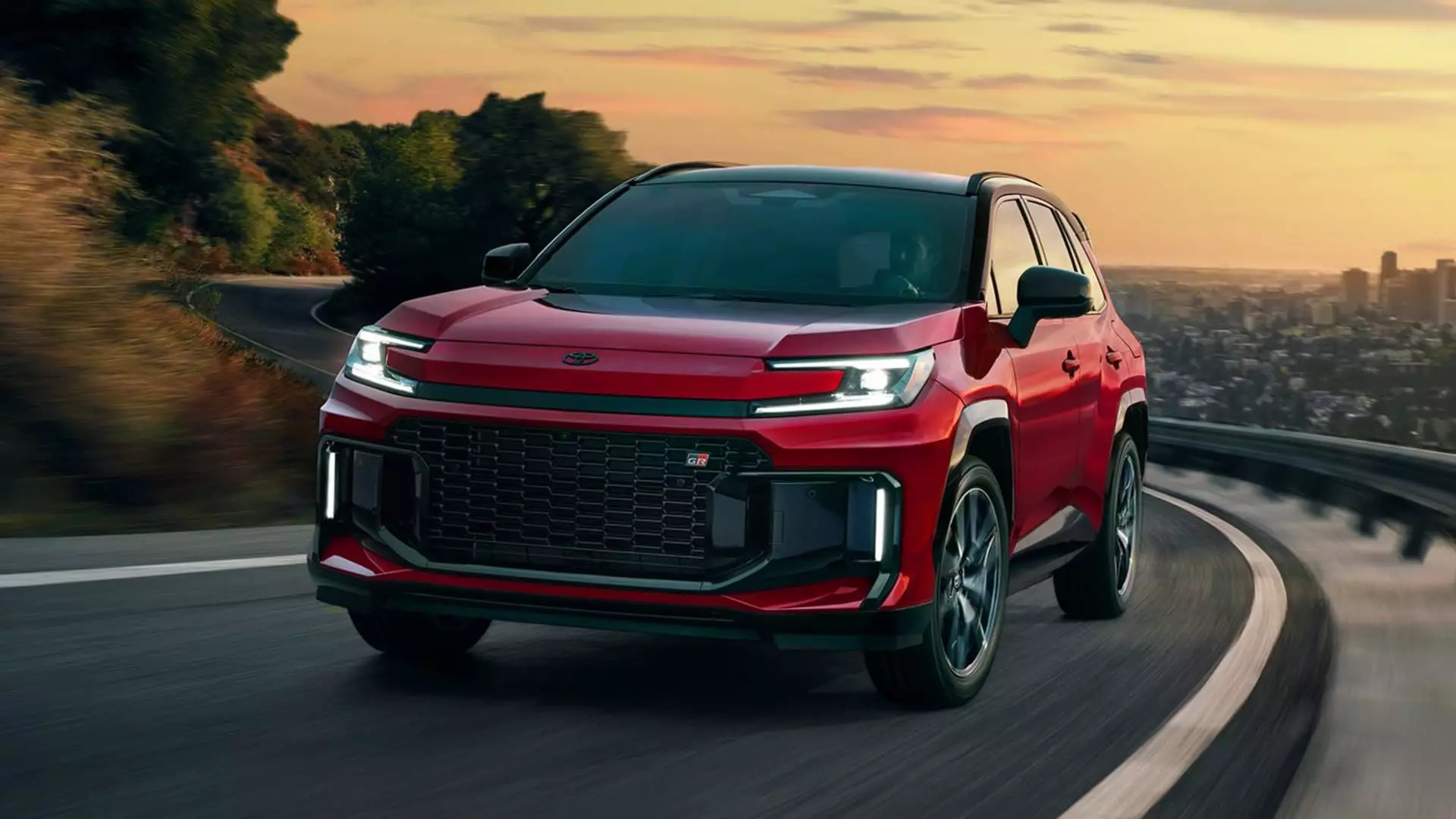7 Reasons Why the New Hybrid-Only RAV4 is a Game-Changer for the Automotive Industry

In a time of tumultuous change within the automotive sector, Toyota’s announcement to sell the redesigned 2026 RAV4 exclusively as a hybrid model signifies an audacious leap towards sustainability. Traditional gasoline engines are fast becoming relics of the past, with companies scrambling to adapt to consumer preferences and regulatory demands. This shift is not merely a nod to environmentalism; it showcases how automakers can harness technology to meet both performance and ecological goals. It’s a smart business decision that may very well influence future market trends across the globe.
The hybrid RAV4 will retain a traditional 2.5-liter four-cylinder engine, but it will be augmented with hybrid technologies such as electric motors and batteries. This melding of old and new paves the way for a more fuel-efficient vehicle while still delivering the power that SUV enthusiasts crave. As a staunch proponent of hybrid adoption, Toyota is taking its leadership to new heights, firmly establishing its place in a rapidly changing marketplace.
Resilience Amidst Electric Vehicle Hesitance
While the automotive industry is largely focused on pushing all-electric vehicles, Toyota’s strategy of emphasizing hybrids speaks volumes about their understanding of consumer behavior. The slower-than-expected adoption rates of EVs illustrate a reluctance that should be acknowledged rather than ignored. By centering its RAV4 product line around hybrids, Toyota is not only positioning itself to meet the current market demand but also acknowledging that the shift to all-electric isn’t as instantaneous as many claim.
Toyota’s hybrid model sales in the U.S. accounted for over 43% of their units sold in 2024, underlining a significant preference for this balanced technology among consumers. The preference for hybrids is further evidenced by a remarkable 29.3% increase in RAV4 hybrids alone last year. While electric is often touted as the ultimate answer to fuel and emissions issues, hybrids represent a bridge—offering a practical option during a transitional phase.
A Customer-Driven Approach
One of the most compelling aspects of Toyota’s decision stems from clear consumer demand. David Christ, president of the Toyota brand in North America, explicitly stated that “the consumer is voting for the hybrid.” This statement highlights a crucial point: consumer preference should guide a company’s strategy. Far too often, promises of a greener future overshadow the needs and demands of actual consumers. By listening to the market, Toyota is demonstrating a commitment to crafting vehicles that resonate with buyers, underscoring the fact that sustainability doesn’t have to compromise performance or appeal.
This focus on consumer interest allows Toyota a significant competitive edge. It shows they are not merely taking orders from regulatory bodies but rather considering the desires of the average driver. This insight is invaluable and often overlooked in policymaking discussions surrounding vehicle electrification.
Economic Implications and the Tariff Challenge
Despite the positive trajectory of hybrid sales, challenges loom on the horizon. With President Trump’s ongoing tariffs affecting large portions of imported vehicles and parts, Toyota faces unique hurdles that could influence pricing and availability. Most RAV4s sold in the U.S. come from Canadian production, while a substantial portion of Toyota’s sales in the market involves imports. This results in potential vulnerabilities that may affect pricing strategies and stock for American consumers.
Mark Templin’s acknowledgment that “uncertainty is the worst thing for an industry” sheds light on the broader implications of governmental trade policies. While Toyota is committed to ramping up local production in Kentucky, the lack of clarity over tariff negotiations makes it challenging for manufacturers to devise long-term plans. Despite these obstacles, Toyota’s proactive approach seems poised to mitigate risks and streamline production effectively.
The Future of Transportation
As we enter an era defined by growing environmental consciousness, the automotive marketplace is swiftly buckling down on sustainability initiatives. Toyota’s exclusive hybrid RAV4 offering could set the tone for competitors in the automotive landscape. It validates a compelling narrative: the hybrid is here to stay, and for many people, it strikes the right balance between the sought-after power of traditional vehicles and the increasing necessity for environmentally-aware options.
As electrified vehicles gained a record 20% of new sales last year, it clear that the change is palpable. With industries experiencing shifts towards greener practices, Toyota’s decision to commit to hybrid technology for one of its best-selling models signifies a significant turning point. Implementing hybrid systems may well be the golden ticket for automobile manufacturers trying to negotiate this complex journey towards a more sustainable future, keeping in mind consumer preferences and regulatory demands alike. In the end, Toyota’s bold move could very well define the conversation around the future of transportation.





